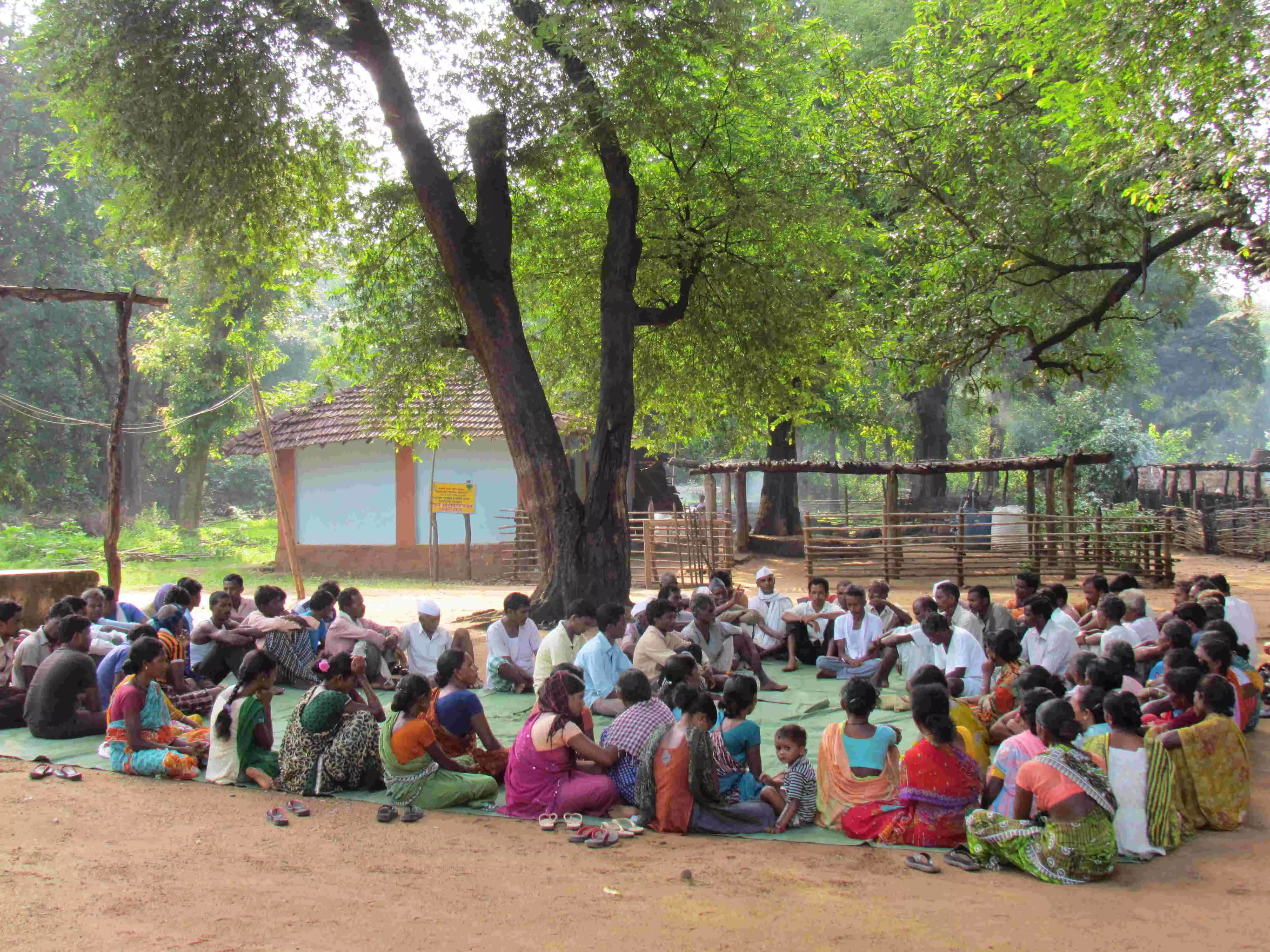Inherence defied?
Even after three decades of its institutionalisation, local governance awaits due recognition in India, which can be facilitated only through mass mobilisation

Thirty years ago, the whole world looked at India with pride as the country made a landmark decision to amend the Constitution and create another layer of government at the local level. This decision was aimed at deepening democracy, and enabling three million elected representatives, especially from marginalised groups such as women, scheduled castes, and scheduled tribes, to participate in the local government. The way this was achieved in the 1990s gave hope that what the central and state governments could not achieve through their initiatives, could be accomplished through mass mobilisation of people, especially from the deprived sections, and their participation in governance and development.
The Constitutionally created Gram Sabha provided an opportunity for the marginalised to shift their noise to voice through active participation. Along with the devolution of powers, the Government of India made development a right, and enacted a series of acts, including the right to work, right to food, and right to education. Having seen the possibilities of emancipation of rustic communities, various institutions and donor agencies from across the world started working with the government and civil society to build a movement for the total transformation of rural communities. Another reason to support this new initiative was mandating the panchayats to achieve economic development and social justice by preparing a perspective development plan with the participation of all sections of the village community. This enabled the panchayats to govern the line departments to work on the plan of the people.
A new framework of governance and development was in place for implementation, and the whole process was in the hands of state governments. The central government took several initiatives to push the decentralisation process vigorously by creating a Ministry with a cabinet minister and budgetary allocation. Within a few years, bilateral and multilateral agencies realised, based on research studies and reports of the Government of India, that state governments were not interested in devolving powers to local bodies and making them institutions of self-governance. As a result, these agencies shifted their priority by withdrawing from supporting decentralisation activities in India. Resultantly, civil society organisations also withdrew from decentralisation activities in the field. The central government reduced the status of the Ministry and allocation of resources, thereby changing the larger push given by the central government to state governments to advisories.
The advisories also came with financial allocations that enabled the states to act on it. In such a way, the decentralisation process has been made a ritual by engaging the local body institutions. Since the author of the article served on many committees of the state governments, at one point in time, I was asked by a Minister to define decentralisation of powers. Once I gave a lucid definition, he asked me a question: where is the power devolution from the central government to the state government in India as per the definition of decentralisation of powers? There I realised the fault in the design of decentralisation of powers. Apart from the above, the present framework of decentralisation gives power to scheduled castes, scheduled tribes, and women. It is not a scheme or allocation of money, but it is a transfer of power. Those who enjoyed power will not allow the power to go from them, and hence they will make designs to keep power with them. Jayaprakash Narayan indicated in 1964 after the demise of Nehru, in the panchayat meeting at Bangalore, that power would be given to people, especially the poor, only after there is a mass movement. People who work for the poor, Adivasis, and women, should join together to build a mass movement for the devolution of powers. Unfortunately, those who claim to work for all the aforementioned categories of people seek bureaucratic or technocratic solutions to address the poor's issues, rather than promoting their empowerment, entitlement, and mass mobilisation. Consequently, the existence of local governments, in itself, can be treated as a success in a hostile environment. However, numerous state governments have violated many of the mandatory provisions of the 73rd Amendment. For instance, while the constitution of the State Finance Commission is mandatory, many states have failed to constitute it regularly. Despite being an independent body, the State Election Commission's status and powers are implicitly curtailed by state governments. In many cases, we have to obtain guidance from the High Court or Supreme Court to conduct local body elections. State governments are hesitant to hold elections for local bodies.
While it is true that all the three levels of government derive their powers from the same constitution, state governments do not treat local bodies as institutions of self-government. Although Panchayat Day has been celebrated and awards given to the best Panchayats over the last thirty years, local bodies remain in limbo.
On April 24, a book titled ‘We Too are Governments’ was released in Kerala, reminding everyone that local bodies are also governments but are not accorded the status they deserve. In this book, the authors made several recommendations to both central and state governments. However, while commenting on it, I stated that what we require is a mass movement from below rather than a government order from the Government of India or state governments. By doing so, a new awakening can be created to empower the people to establish a responsive, responsible, and representative local government, as envisioned by the late Rajiv Gandhi. Only through a process of struggle can a powerful local government be established, not by submitting a petition to the central and state governments by researchers and public intellectuals.
The writer is a former Professor and Rajiv Gandhi Chair for Panchayati Raj Studies, Gandhigram Rural Institute. Views expressed are personal
Image caption: State governments have failed to treat local bodies as institutions of self-government




